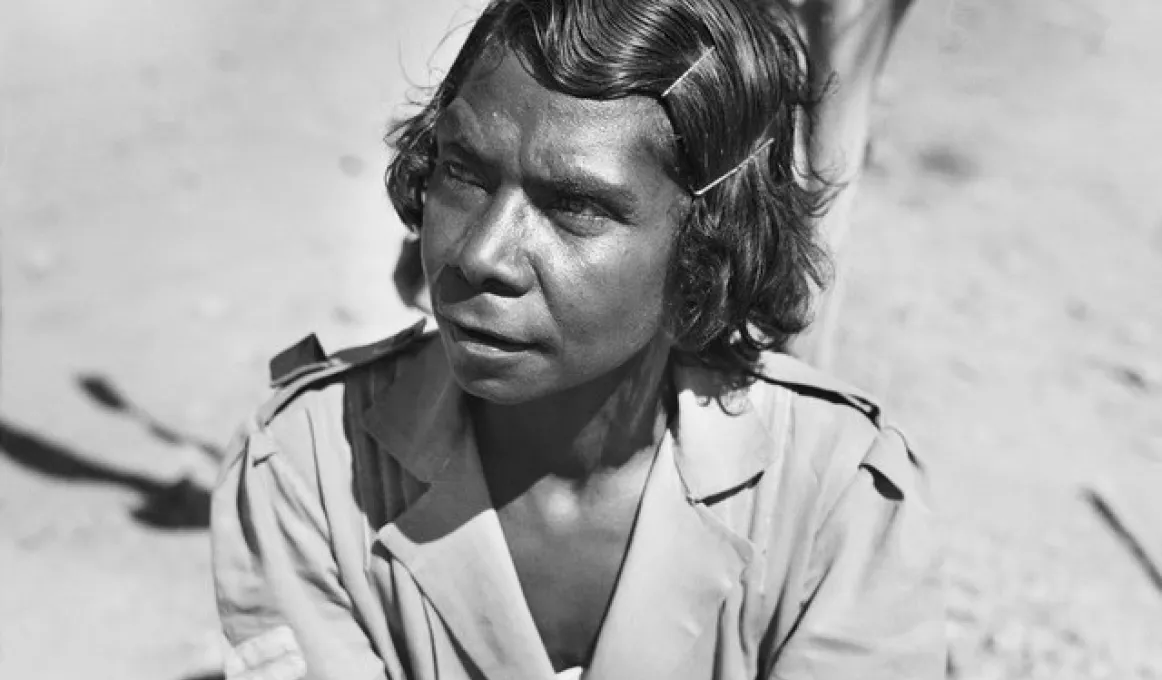Honouring many by remembering one – Dolly Gurinyi Batcho (1905-1973)

Dolly Gurinyi Batcho (1905-1973), a Larrakia woman from the Darwin area, epitomises the sacrifice of an estimated 6000 Indigenous men and women who, during World War II, served the nation that so often discriminated against them.
Anzac Day, 25 April, “marks the anniversary of the first major military action fought by Australian and New Zealand forces during the First World War”. But it is also a day of national remembrance; a day we not only honour those who served in armed conflict but those who supported them.
One such person was Dolly Gurinyi Batcho (1905-1973), a Larrakia woman from the Darwin area. In the 1940s, she found herself working as head of the Aboriginal Women’s Hygiene Squad at the 69th Australian Women’s Army Service (AWAS) Barracks in Adelaide River.
While many of her family members were evacuated to Adelaide in 1942, Dolly remained at Adelaide River, a dangerous place to be that year because it was bombed as part of the raids on Darwin.
The Aboriginal Women’s Hygiene Squad was made up of Aboriginal women from the local area. They were responsible for maintaining cleanliness and sanitation around the army camp. Known as ‘privates’ – these support staff held no military rank or authority.
Dolly was one of an estimated 6000 Aboriginal and Torres Strait Islander people who served as part of Australia’s defence in the Second World War. She is also one of eleven individuals featured in Facing Two Fronts, an exhibition at the National Archives of Australia (NAA).
Senior Curator at the NAA, Anne-Marie Condé said Dolly represents the unenlisted service that occurred in the northern parts of Australia during World War II.
“Aboriginal and Torres Strait Islander people built infrastructure and supported the war effort in many ways, and were often under - or unpaid for their work,” Anne-Marie said.
“Around northern Australian army bases, Aboriginal men were employed as labourers and women would be employed in the laundries.”
The exhibition highlights the difficulties Indigenous people faced during times of conflict. Even though their role was significant, it was largely unrecognised. For some Indigenous participants, armed service provided equality but for others, discrimination.
“Why precisely Dolly joined the war effort is not known, but it is believed that army service would have earned her the respect of her people, and may have helped give her confidence to go on to advocate for land rights,” Anne-Marie said.
In the years following the war, Dolly fought for land rights for Aboriginal people in the Northern Territory. She was a signatory to the Larrakia Petition which was intended for presentation to Princess Margaret on her visit to Darwin in 1972. Dolly also provided evidence to the Land Rights Commission in 1973 shortly before her death.
Dolly was highly respected in her community, described by her family members as a ‘wiry’ and ‘cheeky’ woman and was loved by all who knew her.
Find out more
The National Archives of Australia collects and maintains government records to illuminate Australia’s history and identity.
The Australian War Memorial assists Australians to remember, interpret and understand the Australian experience of war and its enduring impact on Australian society.